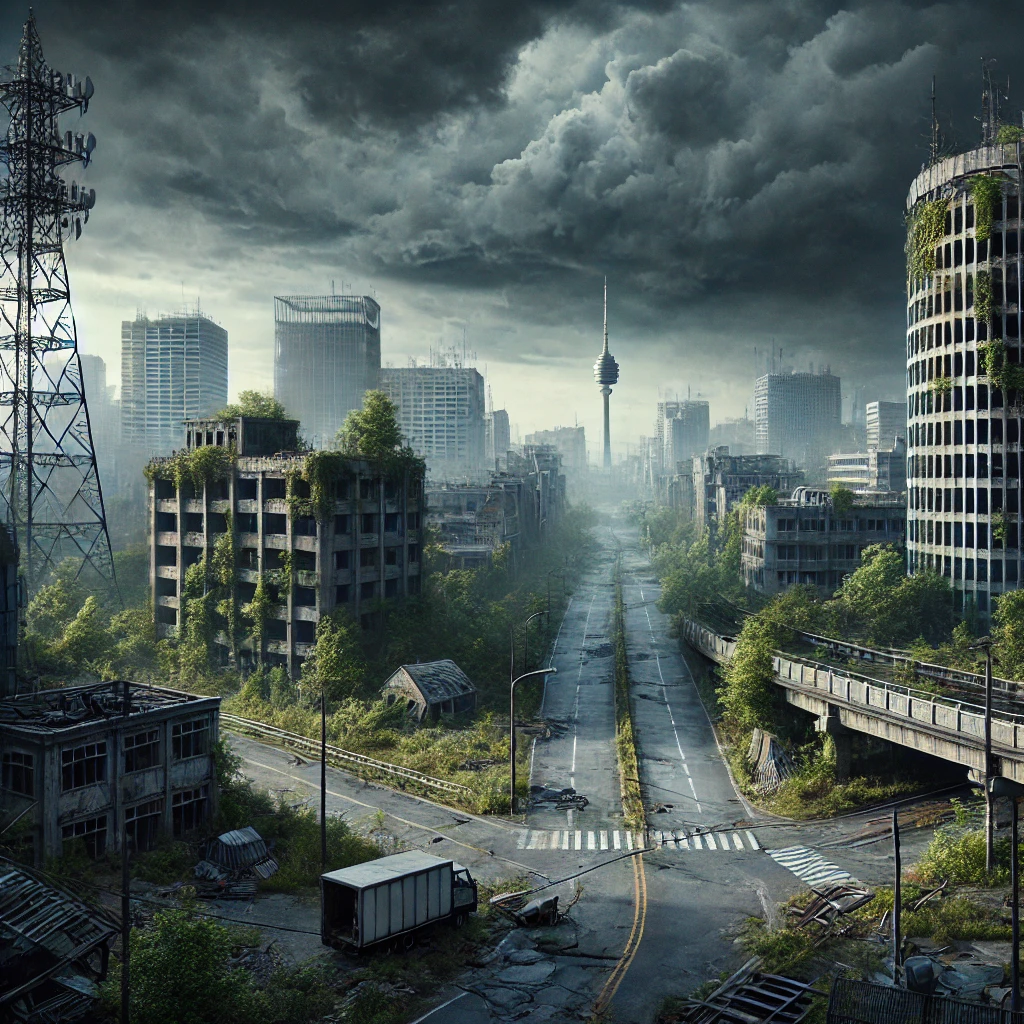Pandemics, Power, and Planetary Peril: Global Security Lessons from “The Stand” is a five-part blog series exploring Stephen King’s The Stand as a lens to examine critical global security challenges. From pandemics and biosecurity to climate change and societal resilience, King’s apocalyptic tale starkly reflects humanity’s vulnerabilities and the systems we rely on to survive. By connecting the novel’s themes to real-world crises, this series highlights lessons for strengthening our preparedness, leadership, and adaptability in an increasingly uncertain world.
BLOG I – “The Stand” and the Collapse of Order: Global Security and the Fragility of Modern Systems
Stephen King’s The Stand serves as a chilling reminder of how fragile modern global systems are in the face of a pandemic. The novel’s central catastrophe, the release of a deadly flu strain called “Captain Trips,” leads to the near-total collapse of human civilization. Governments disintegrate, infrastructure fails, and social trust evaporates, mirroring fears of real-world pandemics and their implications for global security.
In this blog, I examine how The Stand highlights the vulnerabilities of modern systems to biological threats, discuss the role of biosecurity and human error, and draw connections to global responses to pandemics like COVID-19.
The Fragility of Global Security in the Face of Pandemics
The Collapse of Social Order
In The Stand, the engineered superflu spreads uncontrollably, wiping out 99% of humanity. A complete breakdown of global order follows: governments cease functioning, infrastructure crumbles, and societal norms dissolve. Cities are abandoned, bodies litter the streets, and survivors find themselves in an unfamiliar world where law, communication, and trust no longer exist.
This apocalyptic scenario highlights a sobering reality: modern global systems, while advanced and interconnected, are incredibly fragile when faced with pandemics of such scale. The rapid spread of disease can overwhelm healthcare systems, paralyze economies, and undermine governance.
Real-World Parallels:
The COVID-19 pandemic revealed similar weaknesses. Governments struggled to coordinate responses, healthcare systems buckled under pressure, and misinformation fueled public distrust. Nations that failed to communicate transparently or act decisively experienced more significant disruptions. The breakdown in social trust exacerbated the crisis, as seen through:
• Inadequate healthcare resources, supply chain disruptions, and overwhelmed hospitals.
• Delayed responses and inconsistent messaging, eroding faith in public institutions.
• Conspiracy theories and misinformation drive social fragmentation.
Discussion:
How does the collapse of governance, communication, and trust in The Stand reflect real-world responses to COVID-19 and other pandemics? What lessons can we learn to strengthen these systems in the future?
Link to Global Security:
Pandemics challenge not just national health systems but global security frameworks. Organizations like the World Health Organization (WHO) are vital in coordinating international responses, but geopolitical tensions and resource limitations hinder their effectiveness. Strengthening preparedness through transparent communication, robust healthcare systems, and international cooperation remains a critical priority.
Biosecurity and Human Error
At the heart of The Stand lies a human-made catastrophe: the superflu is an engineered bioweapon that escapes containment due to a failure in biosecurity. This raises unsettling questions about the role of human agency in creating or exacerbating global security threats.
King’s portrayal of a bioengineered pandemic reflects fears about humanity’s increasing ability to manipulate pathogens. Whether through accidental lab releases or intentional bioterrorism, biosecurity failures pose existential risks.
Real-World Concerns:
The debate over gain-of-function research, in which pathogens are deliberately enhanced to study their behavior, has drawn significant controversy. Proponents argue that it helps prepare for future pandemics, while critics warn of the risks of accidental release.
• Historical examples include the 1979 Sverdlovsk anthrax leak in the Soviet Union, a biosecurity breach that caused multiple deaths.
• Recent concerns surrounding lab origins of pathogens, though debated, highlight the necessity for stringent safety protocols.
Additionally, bioterrorism remains a pressing global security concern. Technological advancements could make it easier for malicious actors to weaponize biological agents, underscoring the need for international oversight and cooperation.
Discussion:
What role does human error play in exacerbating global pandemics? How can the risks of biosecurity failures, whether accidental or deliberate, be mitigated?
Link to Global Security:
The parallels between The Stand and real-world biosecurity concerns point to a need for enhanced safety measures. International agreements such as the Biological Weapons Convention (BWC) aim to limit the development and use of bioweapons. However, compliance and enforcement remain challenges, particularly as technology advances. Increased transparency, global cooperation, and stringent safety standards are essential to preventing future biosecurity breaches.
Conclusion: A Warning and a Call to Action
Stephen King’s The Stand is more than an apocalyptic horror story; it is a stark warning about the fragility of modern global systems in the face of pandemics. The novel’s collapse of order is a cautionary tale about how quickly societies can unravel when biological threats overwhelm governance, communication, and healthcare.
Moreover, the novel’s emphasis on human error and biosecurity highlights the urgent need to address vulnerabilities in handling naturally occurring and engineered pathogens. The COVID-19 pandemic has shown that these themes are far from fictional; they are pressing global concerns that demand immediate attention.
Strengthening global preparedness frameworks, investing in healthcare systems, and fostering international cooperation will ensure that the breakdown of order in The Stand remains a fictional warning, not an inevitable reality.
Next in the Series: The Human Security Crisis: Redefining Safety in a Post-Pandemic World

